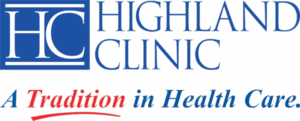You ever find yourself in a waiting area in a hospital? Like a weird mix of dread and hope all coated in hand sanitizer. You see the professionals, nurses and physicians with clipboards and courageous faces walking past. They are combatants on the front lines, combining science and compassion like a master chef creating a stew for the soul, not only cancer treatment experts.

Not only does a cancer treatment expert distinguish out with their memorized texts or thick glasses worn on weary nose, but also with something else. Years of experience, fast thinking, and a little obstinate hope have sharpened their gut sense. Before their second coffee, they balance facts, fresh study results, and a thousand patient anecdotes.
Has anyone ever said, “Every case is different”? In oncology, it speaks to us personally. Although two people can have the same diagnosis, the road map for treatment is as different as fingerprints. One person responds to chemotherapy like a duck to water; another requires a combination of fresh medications, clinical trials, and a firm unwillingness to give up. These cancer stars excel at treating patients, not only diseases.
You will see some eyebrows raise if you have ever incorrectly referred an oncologist as a general practitioner. Its own crazy scene is oncology. To lighten the situation, experts have to be part science, part counselor, all heart, occasionally even amateur comedy. From surgery to focused medications sounding out of a sci-fi book, treatment can range.
Here, the foundation is communication. Confusion rules if a specialist cannot translate complex medical jargon into common language. Patients desire simple answers, honesty, and transparency. Patients and families want straightforward conversation and straight answers—whether good, awful, or somewhere vague in between—not a dissertation.
Not overlooked are the lab coat sidekicks—researchers working on next-generation treatments. The specialists remain hooked into this worldwide brainstorm. They might be aware of a forthcoming trial before it makes front stage news. Patients could find fortune: “I know a study you might be perfect for.” Abruptly, there emerges a new weapon against the illness.
Support does not stop with medicines. When storms strike—when lab findings turn someone’s life upside down or weariness challenges hope—cancer specialists are often the anchor. These are the ones chatting casually about pets or grandchildren to help with tension release. Sometimes, even for a few minutes in a protracted argument, laughter is the finest medicine they can provide.
Experience counts, but intuition is also very important. On a medical school transcript, you will not find it. From a nurse, a raised eyebrow; from a doctor, a deliberate stop adds up. Sometimes that simple hunch saves a life.
Every honest talk, every improvement in treatment, every realization that patients are persons first—not case numbers—helps one develop trust. Families arrive with questions, worries, and occasionally evening shift cookies. There are names remembered by experts. They mourn losses too and root for successes.
Thus, specialists in cancer treatment are not only healers. They are lifelines, news-barers, therapists, and hope-makers. Under those white coats as well? Driven by a will to outsmart cancer—one patient, one day, one honest talk at a time. Regular people.
Highland Clinic
1455 E Bert Kouns Industrial Loop, Shreveport, LA 71105
+13187984500